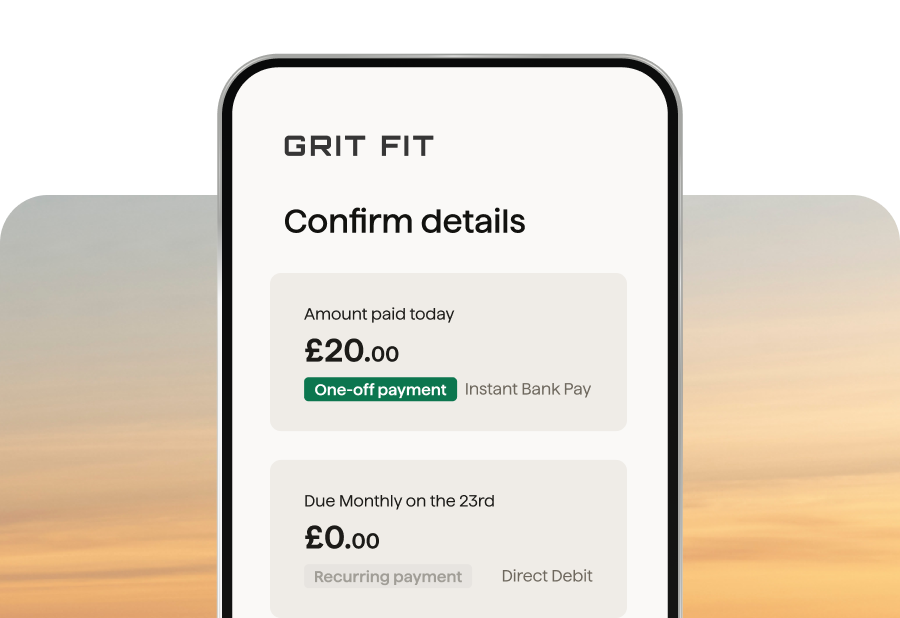Create a payment
Create your first payment
This page gives you an overview of the payment types we support and introduces Billing Requests, our fastest way of creating and managing payments.
What you’ll need
A GoCardless Sandbox account and your API access token
A developer environment capable of making requests to the GoCardless API
Payment types
We specialise in bank payments and offer several types of payment.
Recurring and one-off payments via Direct Debit
This is the most flexible way to collect payments. Your customers complete a mandate, then you can collect payments as agreed with the customer.
One-off payments via Instant Bank Pay
This is the fastest way to collect payments, with confirmation of collection within minutes of the customer giving authorisation. However, it requires authorisation from the payer each time.
Instant first payment and Direct Debit mandate set up
This allows you to take an instant first payment while setting up a mandate to take subsequent payments.
Using Billing Requests to create payments
The simplest way to create any payment is with a Billing Request.
A Billing Request brings all the parts of a payment together. It combines the customer, their authorisation, their bank details, and the payment details into a single, manageable object. Using them makes it easy to handle everything from recurring payments to one-off payments. They also offer access to our latest open banking payments (Instant Bank Pay) and products.
How to create payments

Create mandates to collect ad-hoc one-off or recurring payments
Collect customers' bank details for future payments.

Instant one-off payments
Collect a one-time payment much faster than the typical Direct Debit timeline.

First instant payment and mandate set up
Take a first-time instant payment (i.e joining fee) with a mandate set up for subsequent payments.
Next Steps
Stay up to date with webhooks
Receive real-time notifications from GoCardless when things happen in your account
